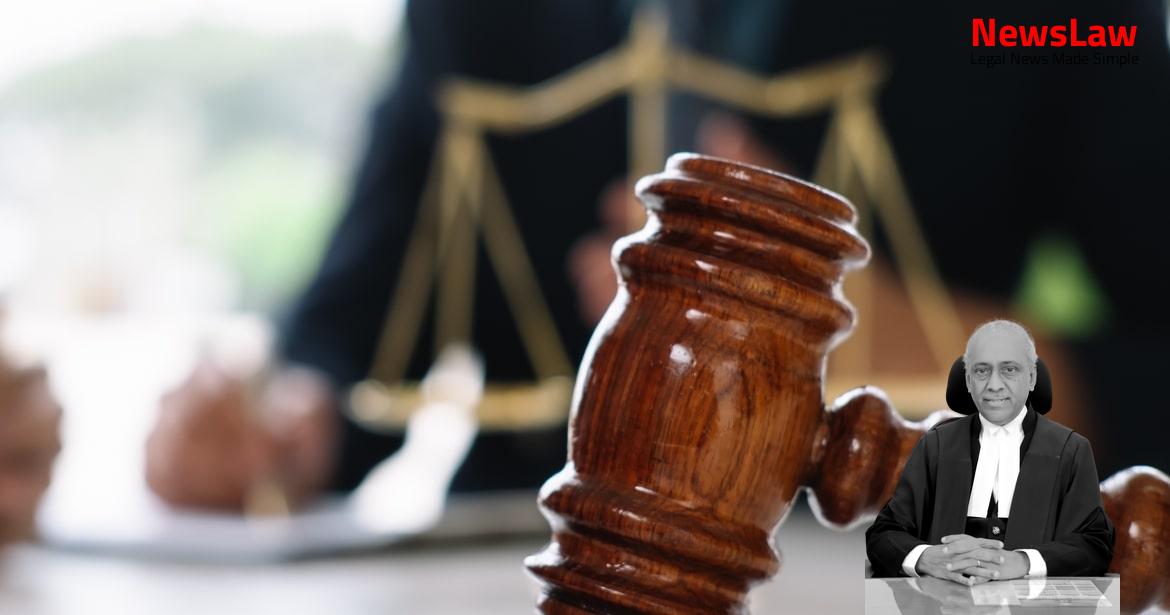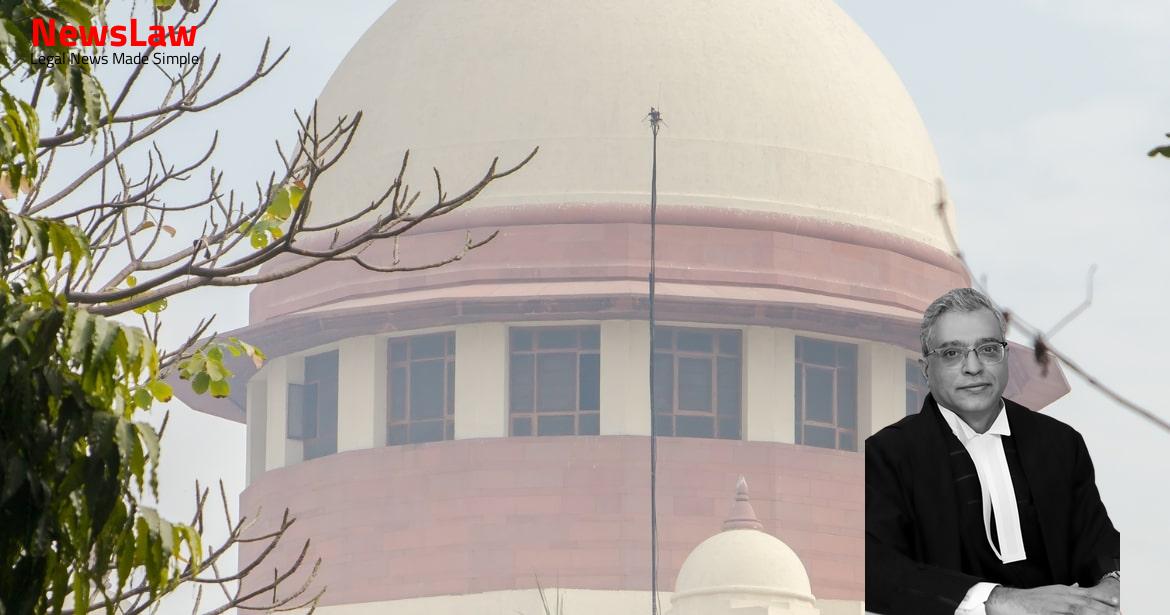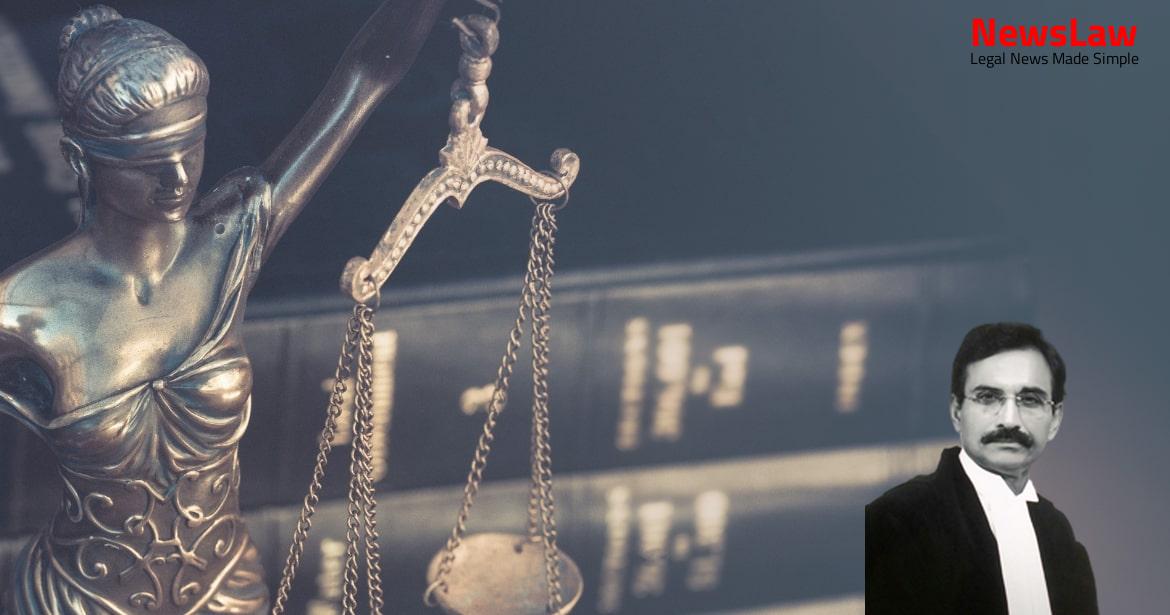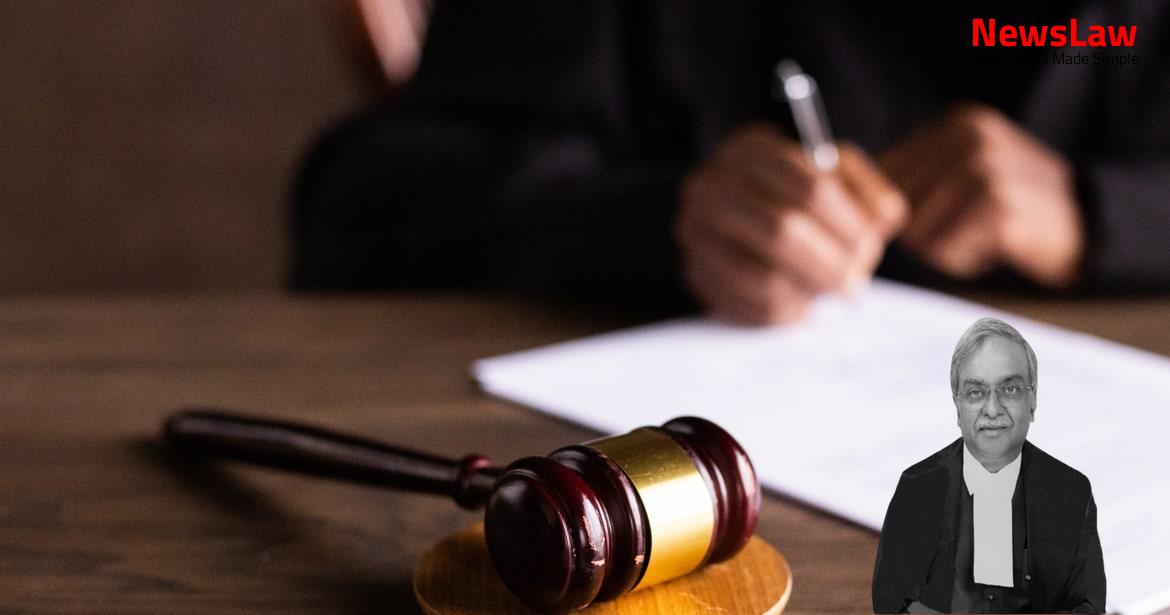In a recent high-profile criminal case, the court conducted a detailed legal analysis focusing on crucial aspects such as burden of proof, witness credibility, and forensic evidence. The court’s examination of these legal principles shed light on the complexities involved in establishing guilt beyond a reasonable doubt. Let’s dive into the intricate details of the court’s ruling and the application of fundamental legal principles in this case.
Facts
- The theory of animosity and false implication by the appellant was rejected by the High Court based on the trustworthiness of the witnesses’ evidence.
- The chain of circumstances pointing to the guilt of the appellant was considered unbroken by the High Court.
- The appellant failed to provide any explanation regarding the girl’s whereabouts, as required by Section 106 of the Evidence Act.
- Arguments about delay in sending the FIR to court and issues with Section 313 questioning were dismissed by the High Court.
- The High Court agreed with the Sessions Court that the appellant exhibited abnormal sexual urge, justifying the death penalty.
- Discrepancies in testimonies of PWs 1 to 3 were deemed minor and insignificant by the High Court.
- The Division Bench of the High Court confirmed the conviction and death sentence for the offences under Sections 302 and 376 of the IPC.
- Accused took niece under false pretext of showing dance and song performances, but she went missing and was found dead in a sugarcane field.
- Last seen theory invoked based on witness accounts of appellant leaving the field where girl’s body was found.
- Accused charged with raping and murdering the minor girl.
- Six witnesses examined by prosecution including first informant, eyewitnesses, and investigating officers.
- Appellant denied charges, claimed false implication due to property dispute with Mr. Zalim Khan.
- Appellant’s mother examined as a defense witness.
- Sessions Court found appellant guilty beyond reasonable doubt based on circumstantial evidence and rare nature of the crime, imposing death penalty.
Also Read: Undisclosed Conviction for Dharna Under Police Act Leads to Overturned Election
Analysis
- The prosecution relied heavily on the testimonies of PWs 1 to 3 to establish the guilt of the appellant.
- There were contradictions and inconsistencies in the evidence provided by PWs regarding crucial aspects such as the lodging of the FIR, conducting the inquest, and the clothing of the victim.
- The delay in transmitting the FIR to the jurisdictional court was deemed significant, lasting 5 days, raising suspicions about the authenticity and timeliness of the FIR.
- Failure to conduct a medical examination on the accused in a case of rape and murder of a minor highlighted a major lapse in the investigation.
- The defence presented by the appellant involved claims of false implication due to enmity with a powerful individual, challenging the prosecution’s narrative.
- The analysis highlighted the lack of consensus in witness statements, inconsistencies in the handling of the case by the police, and the potential for manipulation in the FIR.
- The jurisdictional Magistrate plays a crucial role in ensuring a fair investigation process.
- Reasonable grounds must exist for believing that the examination of a person will provide evidence of the commission of rape or attempted rape.
- Failure to obtain a report from the Forensic Sciences Laboratory was deemed fatal in a specific case.
- Five golden principles were highlighted by the court in ensuring the establishment of guilt in criminal cases.
- The delay in transmitting the special report to the Magistrate is linked to the lodging of the FIR to prevent manipulation.
- The failure to conduct DNA profiling in cases where available could lead to adverse consequences for the prosecution.
- The newly inserted Section 53A in the CrPC after 2006 emphasizes the importance of DNA testing in certain cases.
- Medical examination of a rape victim as per Section 164-A CrPC requires the consent of the victim and competency of the examiner.
- Failure to produce DNA evidence by the prosecution can lead to adverse inferences being drawn.
- Section 164A requires prior consent of the victim of rape for medical examination.
- Section 53A allows for medical examination of the accused if there are reasonable grounds to believe it will provide evidence of the offense.
- Section 164A mandates medical examination during investigation when it is proposed to get the person examined by a medical expert.
- Section 53A explanation includes various modern techniques for examination like DNA profiling.
- Section 53A allows for examination of a person accused of rape by a registered medical practitioner and the preparation of a detailed report with specific particulars.
- Analyzing the evidence with a strong sense of responsibility is important in cases where the burden of proof falls on the prosecution.
- In this particular case, the Court did not find the guilt of the appellant to be established beyond a reasonable doubt.
- Highlighting the lack of conclusive evidence, the Court found the appellant not guilty of the charges brought against them.
Also Read: Analysis of Shared Intention in Defamation Cases
Decision
- The appellant shall be released forthwith if not wanted in connection with any other case.
- The appeals are allowed.
- The conviction and penalty are set aside.
Also Read: Interpretation of Provisions on Supervisory Duties in Employment Dispute
Case Title: CHOTKAU Vs. THE STATE OF UTTAR PRADESH (2022 INSC 1032)
Case Number: Crl.A. No.-000361-000362 / 2018



